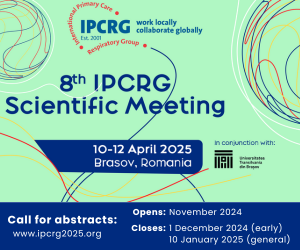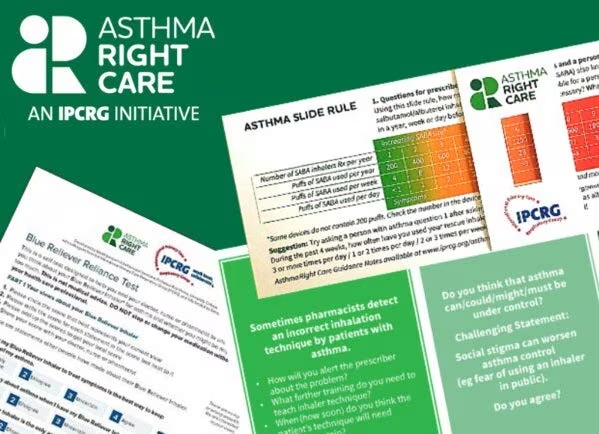Asthma
An Introduction to Asthma
Asthma is a common and potentially life-threatening chronic inflammatory airway disease. Despite many therapeutic advances, it remains underdiagnosed and undertreated. The mainstay of therapy is maintenance controller therapy such as inhaled corticosteroids, together with separate short-acting β2-agonists for acute symptom relief, but treatment adherence is a major challenge. The heterogeneity of asthma makes it difficult to identify specific therapeutic targets. For patients with specific subtypes of severe asthma, such as eosinophilic asthma, targeted therapies including omalizumab, mepolizumab, reslizumab, benralizumab and dupilumab, can reduce exacerbation rates and improve disease control. As experience with biological therapies increases, they are expected to play a more prominent role in treatment strategies, and novel therapeutic targets such as semaphorins and RhoA/Rho‐kinase, are being investigated.
Browse our selection of video highlights and short articles from the conference hub, providing insights into the latest updates from major conferences and a selection of peer-reviewed articles from the journal portfolio.
Our supporting partners do not constitute an endorsement of the content on this page.

The GINA 2025 strategy report introduces a more personalised, age-specific, and proactive approach to asthma care. Key updates include the shift away from SABA monotherapy, expanded use of biomarkers for treatment guidance, and increased emphasis on environmental factors like climate change. The guidelines highlight shared decision-making, routine monitoring, and tailored treatment plans, aiming to reduce exacerbations and improve outcomes across all age groups.

Explore expert perspectives from ATS 2025 with our exclusive interview series. Discover key advances in respiratory care, including updates on COPD, ILD, ventilation strategies, and emerging therapies. Stay informed with concise, clinically relevant insights tailored for healthcare professionals on touchRESPIRATORY.

Physician burnout is at a critical point. In this episode, Nicky speaks with Dr Alfred Atanda about why so many physicians are burning out and what can be done to change the trend. From personal experience to system-wide solutions, Dr Atanda shares valuable insights on improving physician well-being and building a more effective healthcare culture.

In this episode, we explore the future of continuing medical education (CME) with the team behind touchIME. Hannah Fisher and Matthew Goodwin share insights into global and US trends, the importance of patient inclusivity and how educational outcomes are evolving to better measure the direct impact of learning on clinical practice and patient care.

The current treatment landscape for severe asthma faces major challenges despite biologic advances targeting type 2 inflammation. Current biomarkers like BEC and FeNO inadequately predict treatment response. To optimize precision medicine, improved molecular phenotyping and novel non-invasive biomarkers are urgently needed to better identify asthma endotypes and guide therapy.

Artificial intelligence is no longer a futuristic concept in respiratory care — it's already here, reshaping how we diagnose and manage asthma. In this insightful interview, Dr Alan Kaplan shares how AI is helping bridge long-standing gaps in asthma diagnosis, adherence, and disease control. From apps that can tell the difference between asthma and COPD, to smart inhalers that track medication use and predict exacerbations, Dr Kaplan explores the real-world potential of AI — and the challenges that come with it. He also weighs in on whether AI scribe software can enhance the patient–physician relationship, and what excites him most about the road ahead.

Asthma affects nearly 300 million people worldwide.1 Despite a notable decline in age-standardized prevalence, mortality and disability-adjusted life years over the past three decades, the burden of asthma remains high in many countries including low-middle-income countries.2 Climate change is also predicted ...

We are excited to welcome you to San Francisco for the ATS 2025 International Conference! Leaders, as well as emerging scientists and clinicians, who are at the forefront of medical breakthroughs and clinical innovation in pulmonary, critical care and sleep medicine will gather for networking and inspiring talks.

GSK has announced that the European Medicines Agency (EMA) has accepted its Marketing Authorisation Application for depemokimab, an investigational monoclonal antibody targeting interleukin-5 (IL-5), for two indications: as an add-on maintenance treatment for asthma in patients aged 12 and older with type 2 inflammation characterized by an eosinophilic phenotype, and as an add-on treatment for adult patients with inadequately controlled chronic rhinosinusitis with nasal polyps (CRSwNP).

The International Primary Care Respiratory Group (IPCRG), is proud to host the 8th IPCRG Scientific Meeting in Brașov, Romania, on Friday 11 and Saturday 12 April 2025. This event, in partnership with the RespiRO team and the Transilvania University of Brașov promises to bring together researchers, innovators, and industry leaders to advance respiratory care in primary health settings.

The International Primary Care Respiratory Group (IPCRG) has initiated a global social movement to bring meaningful change in asthma management. The driving idea behind this initiative is a recognition that, while the current approach may feel sufficient to many, it falls short of optimal care. The IPCRG network sees clear evidence of avoidable harm and unnecessary costs in the current asthma management framework, which continue to impact lives and wellbeing.1 To counteract this, IPCRG's "Asthma Right Care" aims to inspire a shift towards better care practices by reducing both overuse and underuse of effective treatments. This means moving beyond episodic symptom relief and acute responses to establish a chronic care model that adheres to international or national asthma guidelines, prioritizing the appropriate use of anti-inflammatory inhaled medications.

As we observe World Lung Day, it is crucial to reflect on the escalating impact of respiratory diseases across the globe. Chronic respiratory diseases — including chronic obstructive pulmonary disease (COPD), asthma, lung cancer, pulmonary hypertension, obstructive sleep apnea, and others — continue to rank among the leading causes of morbidity and mortality worldwide. The World Health Organization’s latest data underscores the persistence of the global respiratory crisis:
Latest articles videos and clinical updates - straight to your inbox
Log into your Touch Account
Earn and track your CME credits on the go, save articles for later, and follow the latest congress coverage.
Register now for FREE Access
Register for free to hear about the latest expert-led education, peer-reviewed articles, conference highlights, and innovative CME activities.
Sign up with an Email
Or use a Social Account.
This Functionality is for
Members Only
Explore the latest in medical education and stay current in your field. Create a free account to track your learning.









